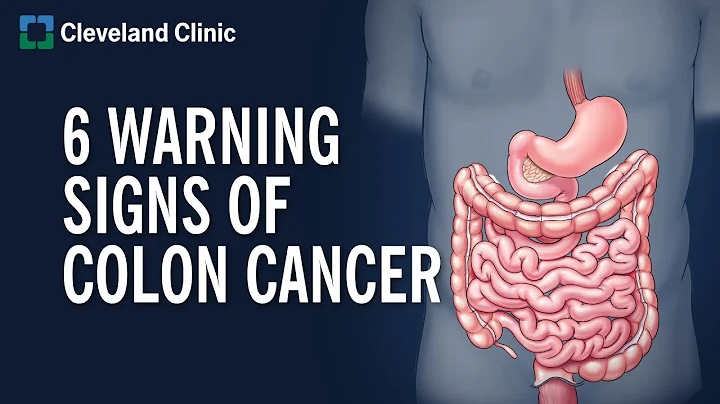Colonoscopy is the most important method for early detection of colorectal cancer. The benefits of a colonoscopy are often beyond your expectations.
95% of intestinal cancers evolve from colon polyps . It usually takes 15 to 20 years for intestinal polyps to develop from benign to malignant. If it can be detected early, the cure rate can reach more than 90% after resection with colonoscopy.
Colonoscopy also has a huge advantage. Once a polyp or a small tumor is found in the intestine, it can be removed immediately, or a biopsy can be taken by the way, which is very convenient. A large number of studies have shown that the screening sensitivity of colonoscopy is as high as over 90%.
01 "Lancet"
One colonoscopy can reduce the risk of bowel cancer by 30% in 17 years!
The famous clinical medical journal "The Lancet" has published a large-scale study showing that a bowel cancer screening examination can reduce the risk of bowel cancer by more than one-third and save countless lives.
This research lasted nearly 20 years and was funded by a number of research institutions in the UK. Researchers found that examining the lower half of the large intestine could prevent 35% of bowel cancers occurring in this area and save 41% of patients' lives.
The study followed more than 170,000 people for an average follow-up period of more than 17 years, of which more than 40,000 people underwent colonoscopy. This is the longest-running study into whether colonoscopies are effective in preventing bowel cancer.
Screening with a colonoscopy can detect small polyps in the intestinal wall. If left untreated, the polyps can become cancerous. Finding and removing polyps during a colonoscopy can prevent the development of cancer. Professor Wendy Atkin, first author of the
article, a bowel screening expert at Cancer Research UK and Imperial College London, said: "We know that bowel examinations have great benefits for older people. Although no screening is perfect, This study shows that colonoscopy can effectively reduce cancer deaths for at least 17 years Bowel cancer is preventable and colonoscopy screening is a good way to reduce bowel cancer so where available. , you should not miss such a good opportunity to check your intestines. "
"Annals of Internal Medicine"
A colonoscopy can reduce the risk of cancer by up to 72%
Doctors believe that if it can be detected early, intestinal cancer is the most common. Easily curable cancer . A large study previously published in the "Annals of Internal Medicine" also confirmed this - colonoscopy can save lives.

The study looked at about 25,000 patients in a health care system where colonoscopies were commonly used.
Among this group of study subjects, about 5,000 patients were diagnosed with colorectal cancer between 2002 and 2008, and died of the cancer in 2010.
Research shows that a large proportion of patients who die from cancer do not have colonoscopies. Comparing screening history over the past 20 years, it was found that colonoscopy was associated with a 61% reduction in mortality, with a 46% reduction in the risk of right-sided colon cancer and a 72% reduction in left-sided cancer.
follow! These 22 situations require colonoscopy.
(1) People with symptoms such as blood in the stool, melena, or long-term fecal occult blood test;
(2) People with mucus, pus and blood in their stools;
(3) Frequent bowel movements , unformed, or diarrhea;
(4) People with recent difficulty in defecation or irregular bowel movements;
(5) People with thin and deformed stools;
(6) People with long-term abdominal pain and bloating;
(7) People with unknown reasons Those who have lost weight and become emaciated;
(8) Those who have unexplained anemia;
(9) Those who have unexplained abdominal masses who need a clear diagnosis;
(10) Those who have unexplained elevated CEA (carcinoembryonic antigen) ;

(11) Chronic chronic constipation that cannot be cured with long-term treatment;
(12) Chronic colitis, long-term medication that cannot be cured with long-term treatment;
(13) suspected colon tumor , but barium enema X-ray examination is negative;
( 14) Abdominal CT or other examinations reveal thickening of the intestinal wall, and colorectal cancer needs to be ruled out.
(15) Lower gastrointestinal bleeding , the bleeding focus can be found, the cause of bleeding can be determined, and bleeding can be stopped under the microscope if necessary.
(16) Patients who have suffered from schistosomiasis , ulcerative colitis and other diseases.
(17) Colonoscopy needs to be reviewed regularly after colorectal cancer surgery. Patients after colorectal cancer surgery generally need a follow-up colonoscopy every 6 months to 1 year.
If the colonoscopy fails to examine the entire colon due to colon obstruction before surgery, a colonoscopy should be performed 3 months after surgery to determine whether there are colon polyps or colon cancer in other parts of the colon.

(18) Those who have been found to have colon polyps and need to be removed under colonoscopy;
(19) Colorectal polyps require regular colonoscopy review after surgery.
Colorectal polyps may recur after surgery and should be reviewed regularly.
Villous adenoma, serrated adenoma and high-grade epithelial neoplasia polyps are prone to recurrence and canceration. It is recommended to review colonoscopy every 3 to 6 months.
For other polyps, it is generally recommended to have a colonoscopy every 12 months.
If the re-examination colonoscopy is negative, it will be re-examined in 3 years.
(20) People with a family history of colorectal cancer should undergo colonoscopy:
If one person in the family has colorectal cancer , his immediate family members (parents, children, brothers and sisters), even if they do not have any symptoms or discomfort, A physical examination should be done with a colonoscopy.
A large number of studies have proven that:
If one person gets colorectal cancer, the probability of his immediate family members (parents, children, brothers and sisters) getting colorectal cancer is 2 to 3 times that of the normal population.
(21) People with a family history of colorectal polyps also need to undergo colonoscopy.
(22) People over 40 years old, especially those who have long-term high-protein and high-fat diets and long-term alcoholics, are best routine physical examinations have a colonoscopy to detect some asymptomatic early colorectal cancer as early as possible.

Special reminder: Don’t mistake blood in the stool for hemorrhoids !
1. Blood in the stool ≠ hemorrhoids!
The incidence of hemorrhoids is very high, and blood in the stool is the most common clinical manifestation of hemorrhoids, so many people think that blood in the stool is caused by hemorrhoids. This view is extremely wrong, because many other diseases can also cause blood in the stool, such as colon cancer, rectal cancer, anal fissure, rectal hemangioma, etc.
2. Blood in the stool is the most important clinical manifestation of colorectal cancer.
Blood in the stool is a common symptom of dozens of anorectal diseases such as hemorrhoids, anal fissure, enteritis , etc. Therefore, the real cause cannot be determined based solely on blood in the stool. When hematochezia and melena occur repeatedly, you should go to a regular hospital for colonoscopy in time to avoid delaying diagnosis.
3. Hemorrhoids do not cause rectal cancer, but hemorrhoids can be accompanied by rectal cancer.
Hemorrhoids are a benign disease and will not evolve into rectal cancer. However, patients with hemorrhoids may also develop rectal cancer, which should be taken seriously.
4. Patients with hemorrhoids who have bloody stools that do not heal after long-term treatment should be highly suspicious of rectal cancer.
The main symptoms of hemorrhoids and rectal cancer are blood in the stool. Some patients have a history of hemorrhoids, so as long as there is blood in the stool, they are considered to be hemorrhoid bleeding. Blood in the stool caused by rectal cancer will also improve after treatment with hemorrhoid suppositories, but it will reoccur after a period of time and recur, which cannot be cured after long-term treatment.
At this time, you should go to a regular hospital as soon as possible to perform digital rectal examination and colonoscopy to rule out the possibility of colorectal cancer.
Source: Gastrointestinal Disease
"Wake up early in the middle of the night" and can't sleep anymore... Self-examination to see if there are 9 physical conditions
Beauty is in the bones but not in the skin? The more attractive these parts of your body are, the more dangerous they are!
How to provide first aid for sudden myocardial infarction? Watch out for these signs!












![[Source: Ledong Li Autonomous County People's Government_Today's Ledong] On the morning of October 30, Ledong carried out the promotion and training activity of "Fine Silver Needle Thermal Conductivity Therapy Precise Treatment of Neck, Shoulder, Waist and Leg Pain". Relevant lea - DayDayNews](https://cdn.daydaynews.cc/wp-content/themes/begin/img/loading.gif)









